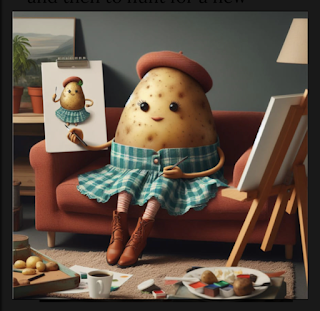Parkinson's:The Spoon Theory
In my boxing class, the other day, Cynthia, mentioned the “Spoon Theory.” Juxtaposing the word Spoon with the word Theory- made me smile, but I had no idea what it meant. It turns out it is a great way of explaining to your friends or family, what it is like to live with a chronic disease-mental or physical.
So this is what she did:
She grabbed a bunch of
spoons off of their table and the table next to them.
She thrust them into her friend's hands.
She said “You have
lupus. Count the spoons.”
Her friend counted
them.
“Twelve, there are twelve spoons.” Then she
joked around and said she'd like more.
Christine said “No,
you can't have more.”
“That is how much
energy you have to spend on your day.”
Then she asked her to list what she does in her day-starting
with opening her eyes and getting out of bed.
(With Parkinson's I am usually awake for hours before I open my
eyes. I turn over with difficulty, to
get one leg over the bed and then the other leg I brace on the side of the bed
and hold onto it with one hand, to lever myself up. I fumble, as quietly as I
can, on my side table for my glasses. In
the dark, I slowly shuffle over to the alarm clock to see what time it is. At 7, I get to take
my pills. An hour after that, I will be “on” and can eat.)
Christine took away a spoon for each detail. For taking her medicine she needed to eat first. She took one spoon from her friend. (For me I can't have eaten for 2 hours before taking my medicine and then for one hour after taking it. That is if I believe the Parkinson's Specialist from the Mayo Clinic. My Nurse Practitioner cuts that time in half.)
Christine explained that the difference between being sick and being healthy is having to make careful choices of what you can do or can not do. You have 12 spoons full of energy.
Before her friend was even at work for the morning, half her spoons were gone.
Many people, that are healthy, especially the young, think they have unlimited possibilities of what they can do and unlimited energy to do them. When you have a chronic disease, you know you don't.
When your “spoons” are gone, they are gone. On a good day, you can borrow against tomorrow’s “spoons.” But tomorrow you may crash, because you start the day with less spoons.
In Parkinson's,
there are some good days (or parts of good days) and some bad days. There are
many reasons for bad days - for example-
I didn't sleep most of last night, so I took my 7 am medicine, and was
able to sleep for 2 hours. But then I ate my breakfast too late and my 11 am
medicine (which became my noon medicine today)
is not able to work well. SHEESH.
Mostly you need to learn to slow down and not do everything. The other day, I said yes to something I would never have had to think about before. Of course, I would say yes. This time, I realized as the day for the event came closer, that I didn't have the energy to do this. And now my husband would need to take over at times so I could rest. It turned out we had a wonderful time. But it was at the pace that my body could do and that my friend and my husband made possible. (Thank you to my loving husband and my dear friend!)
So, how many spoons do you have left today? And which of the many things you might want to do will you do with them?
Cheers,
Nancy and the Snark



What a fantastic visual. Thank you.
ReplyDeleteThe Spoon Theory is a great metaphor for explaining a chronic illness. I think it can also be useful in explaining the slow loss of the youthful vibrant self as old age takes its daily toll--one small loss at a time. I love the weekly gems you send our way, Nancy and Corrine. They have much insight and food for thoughtful contemplation. Jonatha
Deletehi Jonatha, I agree it also is a great way of explaining aging, and you say it so well "the slow loss of the youthful vibrant self as old age takes it daily toll! (Though you, my dear have not lost your vibrant self!)
DeleteThank you ❤️
DeleteI agree, thank you Corrine!
ReplyDeleteEXCELLENT !!! I have really been enjoying your blog Nancy!!! And you are so fortunate to have a Corrine in your life. Good friends are so special
ReplyDeleteThank you Chris, I am fortunate to have Corrine in my life.
Delete